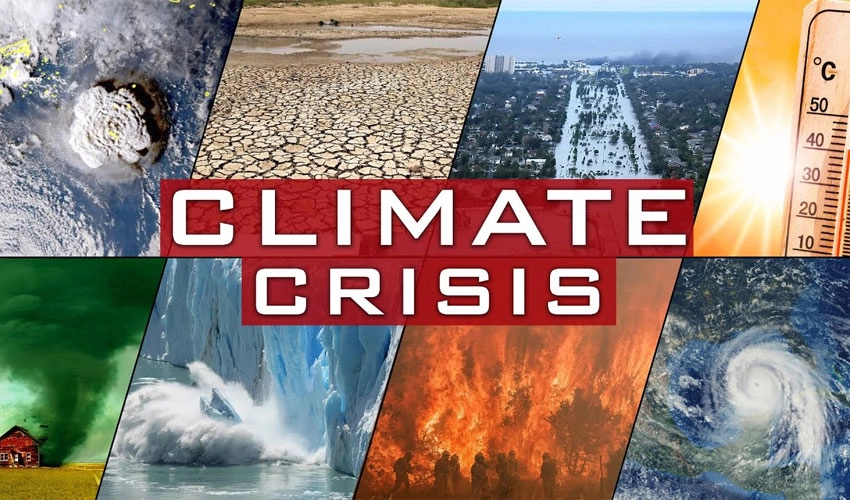Tackling The Climate Crisis


“What is the use of a house if you have not got a tolerable planet to put it on?” said Henry David. Climate Change is not something which is far away at this point in time; it is real, it is happening now. The approach adopted by the concerned stakeholders in present depicts insensitivity towards future generations; they are very active and agile in giving statements and showing their concerns but the harsh reality is none of them is ready to travel an extra mile and act as a role model. If the stakeholders keep waiting for others to react first, it will get too late and they will be left up with nothing but regret.
Keeping in view the disparity in the wealth of different countries, we can not expect every country to contribute equally to combat the issue: the countries having strong economies and deep pockets should take the lead and should provide the third world countries with the financial assistance which complements the efforts of the developing countries and aids in achievement of the goal.Obviously, the less developed countries which have more than 50% of their population living in absolute poverty and which are already struggling to make ends meet can not afford to divert theavailable resources to combat this issue.
The rich economies need not only to provide funds to the poor economies but also need to supervise everything to ensure that they are being spent in the direction in which they are meant to be spent. Corruption and kickbacks should be closely monitored and independent auditors should be hired to ensure transparency. Besides financial assistance, the technologically advanced economies should also exchange technological ideas with their neighbors and should elevate their ability to make use of the green technology which minimizes the environmental damage.
In order to cater to the climate change problem, it is very important for us to diagnose what exactly has caused this. As per the findings of the environmental scientists, the climate change is primarily an outcome of the high level of carbon which is emitted into the air. The burning of fossil fuels plays a crucial role in raising carbon levels in the air. Besides this, industrial activity also plays an imperative role in polluting the environment. Furthermore, deforestation activity also exerts a negative pressure on our environment.
Keeping all the aforementioned points in mind, the authorities need to devise an action plan which works on each of them and attempts to minimize the carbon emissions to the lowest level. Strategies should be formulated to replace the conventional fossil fuel fed vehicles with the electric vehicles. Although it is a very tough ask, a partial success in it can do wonders by significantly lowering the carbon levels. Besides this, stringent regulation must be used by the Government via which they must allot pollution permits to firms which limit their carbon emissions to a restricted level. In addition to this, the authorities must incentivize the green firms by giving them tax reliefs and subsidies. This act will encourage the other firms to go green as well.
The Government sector can not alone do everything and therefore needs the support from NGO’s. Private NGO’s must also take the lead and launch awareness programs aiming to educate the masses about the destruction their negligence is causing. Furthermore, the NGO’s must take initiative and launch campaigns to stop deforestation and to promote afforestation and reforestation.
Torrential monsoon rains have recently wrecked havoc in Pakistan. The floods have escalated the difficulties for Pakistan at a time when its economy is on the brink of default. The collective damage in the country is worth 6 billion dollars. The most disturbing fact about it is that although Pakistan is only responsible for less than 1% of the global carbon emissions, it is a one of the countries which is most affected by the climate change. The melting of glaciers due to global warming changed the entire environmental cycle having devastating impact on the country.
All stakeholders must learn a lesson from what already has happened and what is happening. If today it’s Pakistan, tomorrow it will be any developed country. A collective effort which tackles the threat with an iron fist is what we need to secure the future of our generations by providing them with a better planet than what we were offered by our predecessors.







